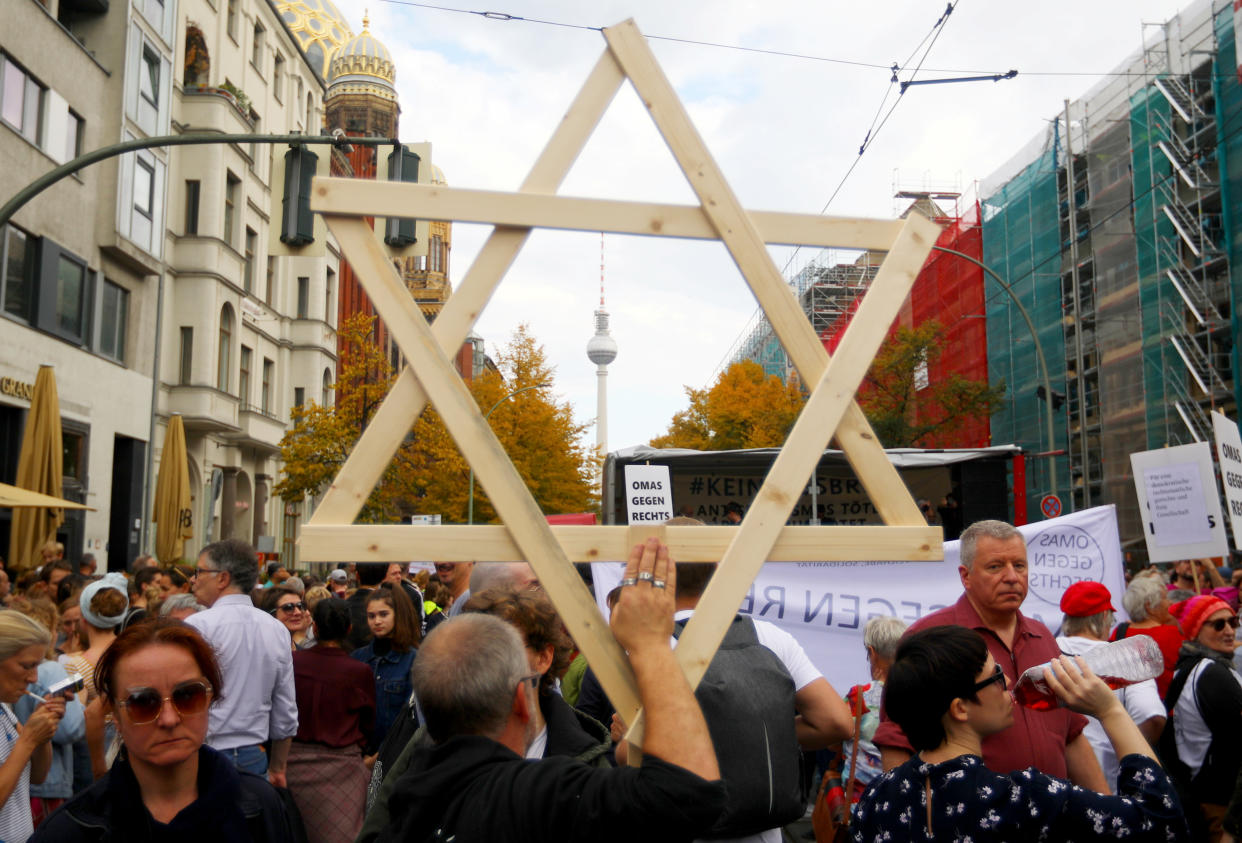Germany plans year-long Jewish culture celebration amid 'explosion of anti-Semitism'

Germany will launch a year-long campaign celebrating and explaining Jewish life and culture in 2021, in the face of what the Central Committee of Jews in Germany described as an “explosion of anti-Semitism” in the country.
The joint initiative by the Central Committee of Jews in Germany, Catholic, and Protestant churches, and other groups will include a broad variety of cultural and historical exhibitions about Jewish life and faith in the country as well as festivals, special postage stamps, and the production of a Jewish food guide.
“Beyond the memory of the Shoah [Holocaust], we want to show how Jewish life has shaped our country in countless ways,” said Abraham Lehrer, deputy leader of the Central Committee of Jews in Germany.
The first mention of Jews in Germany appeared in an edict by the Emperor Constantine in 321 AD, saying they should be admitted to the city council in Cologne.
Felix Klein, the government’s antisemitism commissioner, told journalists in Berlin on Tuesday that “Germany and Judaism belong together, and are a centuries-old, important pillar of our secular society.”
As well as commemorating Jewish people’s historical place in Germany, the project, called “321-2021: 1,700 years of Jewish Life in Germany,” is an attempt to counteract the rising anti-Semitism in the country. Giving people a chance to discover more about the Jewish community in Germany will hopefully overcome prejudices against Jews, Lehrer said.
Lehrer said that “very few know what Jews are and what Jewish life is.” He added that the year-long initiative is not about forgetting the Holocaust, but enlightening people about how much Jews have contributed to German science, culture, and society over the centuries.
Klein said that explaining Jewish people’s place in ancient Germany and what modern Jewish life looks like could make people “less susceptible to rumours and prejudices, to conspiracy theories and hate.”
Germany has seen a worrying rise in the number of attacks on Jewish people and their property, and defacement of Jewish cemeteries in recent years. A report in May 2019 recorded a 10% increase in anti-Semitic crimes in 2018 from the year before.
In October 2019, a German gunman attempted to break into a synagogue in the eastern German city of Halle to attack worshippers inside. When he failed to gain entry, he shot two people outside on the street.
READ MORE: Germany to create 600 jobs to tackle far-right extremism
It is not just Germany that is witnessing a dramatic increase in hatred in anti-Semitism. In 2018, a survey of 16,500 Jewish people in 12 EU member states by the European Union Agency for Fundamental Rights found that anti-Semitism “pervades everyday life” for them.
Nine out of 10 respondents felt anti-Semitism had increased in their country in the five years before the survey, and 85% saw it as a serious problem. The overwhelming majority those who had experienced harassment did not report it to the police — almost half of them said they thought it would not change anything to report it.
The rise of the far-right political party Alternative for Germany, and online hate speech have stoked both anti-foreigner, and anti-Jewish sentiment in the country. AfD politicians have called for an end to Germany’s “culture of remembrance” for the Holocaust, when over 6 million Jews were murdered by the Nazis. AfD leader Alexander Gauland called Hitler and the Nazis “a mere speck of bird shit in more than 1,000 years of glorious German history.”
This year marks 75 years since the liberation of the Auschwitz concentration camp. Israel will commemorate with an event in Jerusalem on 23 January, which will be attended by world leaders including the Russian, French, and German presidents, and US vice-president Mike Pence. There will also be a memorial at Auschwitz on 27 January.
READ MORE: A polarised Germany marks 30 years since Berlin Wall fell


